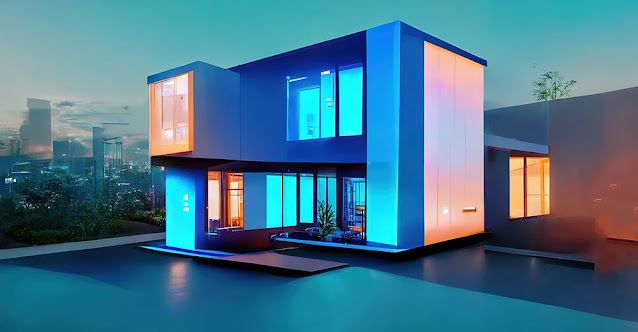More and more people are looking for ways to improve the energy efficiency of their houses as energy bills continue to rise. You can, fortunately, maximize your home's energy efficiency and reduce your electricity costs by using a variety of data-driven insights.
In this post, we'll examine some of the best ways to increase the energy efficiency of your home using data-driven insights, from modernizing your HVAC system to installing smart home technology.
1. Upgrade Your HVAC System
Upgrading your HVAC system is one of the best ways to maximize your home's energy efficiency. Nearly half of the energy used in the typical American home is used for heating and cooling, according to the Department of Energy. You may drastically cut your energy use and lower your power costs by switching to a more efficient HVAC system.
It's crucial to check for ENERGY STAR-certified models when selecting a new HVAC system. These systems can reduce your heating and cooling expenses by up to 20% and are created to adhere to high energy efficiency standards.
2. Insulate Your Home
A further important element in maximizing your home's energy efficiency is proper insulation. Insulation keeps your house cool in the summer and warm in the winter, requiring less energy to keep it at a suitable temperature.
The most vulnerable parts of your home to heat loss, such as the attic, walls, and floors, should receive special attention while insulating them. Based on elements like your local climate and the age of your home, you can utilize data-driven insights to select the most efficient forms of insulation to use in each section of your home.
3. Install Energy-Efficient Lighting
Installing energy-efficient lighting is another simple approach to increasing the energy efficiency of your home. Traditional incandescent bulbs are not as energy-efficient as LED lights, which can use up to 80% less energy to create the same amount of light.
You can utilize data-driven insights to optimize your lighting system for optimal efficiency in addition to installing energy-efficient bulbs. You can use smart lighting technology, for instance, to have lights turn off automatically when a room is empty or to change the brightness of your lights according to the time of day.
4. Implement Smart Home Technology
The use of smart home technologies can significantly improve your home's energy efficiency. For instance, smart thermostats may automatically modify your heating and cooling settings in accordance with your schedule and preferences, saving you both time and money.
By automatically altering their settings based on your consumption habits, other smart home appliances and lighting systems can also assist you in saving energy.
5. Conduct an Energy Audit
It's crucial to perform an energy audit in order to completely maximize your home's energy efficiency. An energy audit examines every aspect of your home's energy use, identifying any inefficiencies and offering suggestions for improvement.
An energy audit involves a specialist analyzing your home's energy usage using data-driven insights to look for areas where you may use less energy and save money on your utility bills. This can involve changing your appliances to more energy-efficient models or improving your insulation.
Conclusion
Improving the energy efficiency of your home is crucial for lowering your energy usage and utility costs. You may dramatically lower your energy usage and improve the overall efficiency of your home by putting data-driven insights into practice, such as improving your HVAC system, insulating your home, installing energy-efficient lighting, integrating smart home technology, and performing an energy audit.
Making your home as energy-efficient as possible is a wise investment that will pay off for many years, whether your goal is to lessen your influence on the environment or simply save money on your monthly costs.


_11zon.png)

No comments:
Post a Comment